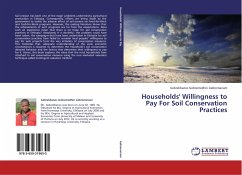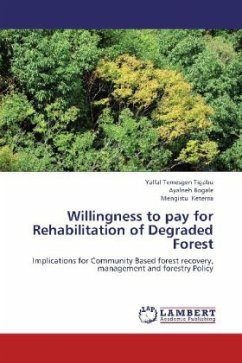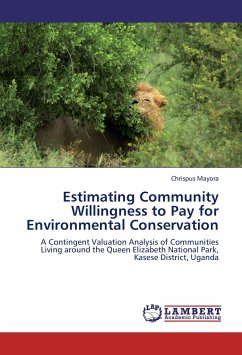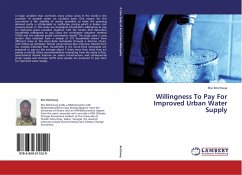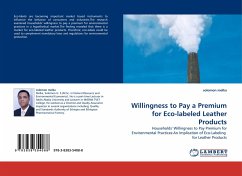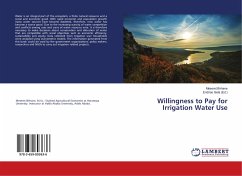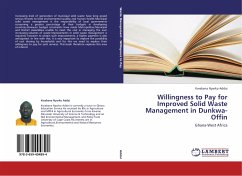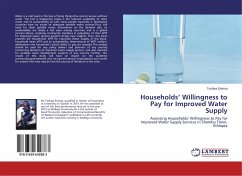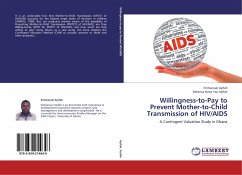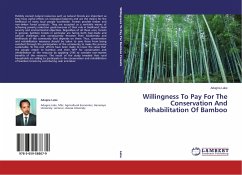
Willingness To Pay For The Conservation And Rehabilitation Of Bamboo
Versandkostenfrei!
Versandfertig in 6-10 Tagen
36,99 €
inkl. MwSt.

PAYBACK Punkte
18 °P sammeln!
Publicly owned natural resources such as natural forests are important as they have useful effects on ecological balances and are the means for the livelihood of many local people worldwide. Forests provide timber and non-timber forest products. They are accepted as a veritable means of achieving poverty reduction goals because of their role in livelihood, food security and environmental objectives. Regardless of all these uses, forests in general, bamboo forests in particular are facing both man-made and natural challenges and consequently threaten their biodiversity and livelihoods of the co...
Publicly owned natural resources such as natural forests are important as they have useful effects on ecological balances and are the means for the livelihood of many local people worldwide. Forests provide timber and non-timber forest products. They are accepted as a veritable means of achieving poverty reduction goals because of their role in livelihood, food security and environmental objectives. Regardless of all these uses, forests in general, bamboo forests in particular are facing both man-made and natural challenges and consequently threaten their biodiversity and livelihoods of the community that depends on them. Thus, conservation and rehabilitation measures should be taken to save them from being vanished through the participation of the community to make the process sustainable. To this end, efforts have been made to know the value that the people attach to bamboo and their WTP for conservation and rehabilitation of the resource by applying CVM to consider non-market benefits of the resource. The result of the study revealed that rural households are willing to participate in the conservation and rehabilitation of bamboo forests by contributing cash and labor.



